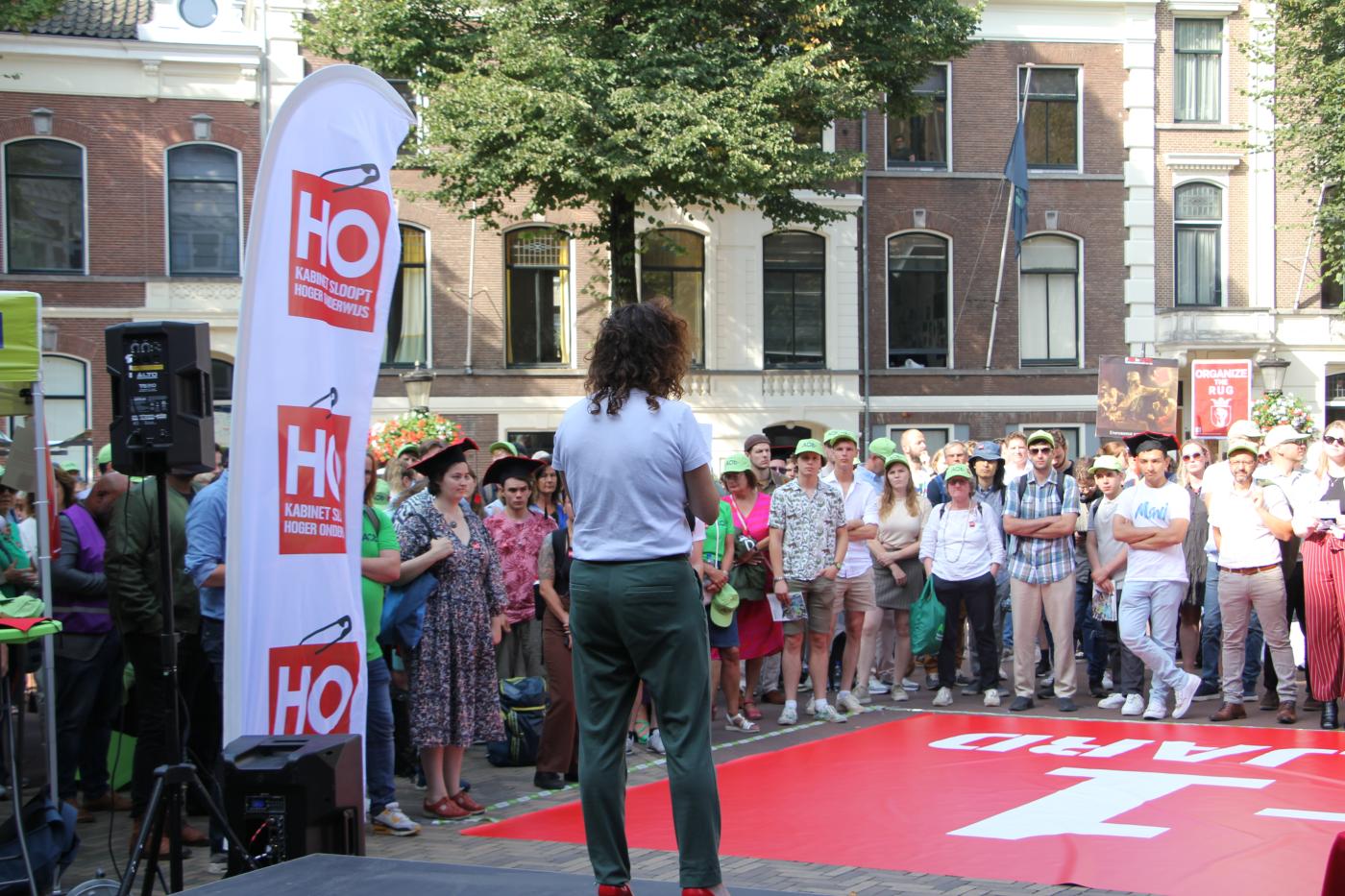Budget cuts stem from a desire for revenge
What’s really at stake in Dutch higher education

“We are working on the most disruptive strike in Dutch education ever.” This powerful message came from one of the founders of WO in actie at the alternative opening of the academic year last September. Next Thursday, Utrecht will serve as the stage for a large-scale protest against the budget cuts in Higher Education recently announced by the Dutch government. This event could be the beginning of a sustained, escalating movement—or simply a temporary outpouring of anger and frustration.
In the meantime, dozens of full professors have written letters to national and university newspapers, voicing their concerns. Hundreds of students and teachers are hard at work organizing for Thursday, and thousands more are expected to attend. How did it come to this? Why are these people, typically respectful and amicable in their relations with university and government officials, ready to take part in disruptive actions?
At first glance, one might assume the protest was sparked by the announced closures of several BA programs in Utrecht or Leiden, recent policy changes that add to the already high workload, or cuts to research funding. While these factors might have fueled discontent, they came after the initial call to action by WO in Actie. The real reasons behind this movement seem to lie deeper.
Budget cuts in Higher Education were not discussed in any of the electoral debate and never brought to the attention of the public before the elections. Financially conservative parties like the VVD may claim these cuts are about keeping the books balanced, but should be clear that sacrificing education is a choice, not a necessity. Other parties, like NSC, might argue these cuts will discourage the influx of international students, who have been framed as a key contributor to the housing crisis. Closing ‘small’ programs mostly aimed at Dutch students obviously does not even address this issue.
The real motives behind these cuts thankfully emerge when PVV members are unable to hide them: these cuts stem from a desire for revenge. They target the part of society that does not shy away from exposing the shortcomings of political decisions and question the agenda of the moment. These cuts are aimed at institutions that foster diversity and inclusion, clashing with a political climate that increasingly leans on division. At their core, these cuts represent an attack on reason itself, favoring gut reactions over thoughtful policymaking.
Such a movement of reprisal deserves to be met with strong and widespread resistance. Today it is aimed at educators and students—tomorrow it could be aimed at anyone. Teachers, students, and advocates of all disciplines should join, for they all nurture critical thinking. People from all backgrounds should come forward, because we are all outsiders at some point. And citizens from across the political spectrum should stand together on November 14th, because policy making should never be dictated by revenge.